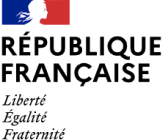CHANGES IN HIGHER EDUCATION
The various reforms that have taken place have had the following consequences:
- Making higher education programmes part of a lifelong learning programme, especially in the context of initial training, but also as part of work-study training (apprenticeship and professionalisation contracts), in further education and through the RPL scheme;
- Improving the clarity of the competencies and learning outcomes certified by the national bachelor’s, master’s and doctoral degrees (development and implementation of the new training framework);
- Facilitating guidance for students and making it easier for them to change direction during the course of their studies;
- Placing the emphasis on professionalisation during the course of studies (for bachelor’s degrees, in particular, the emphasis has been placed on opportunities to enter professional life immediately after obtaining this degree, whereas bachelor’s curricula previously tended to encourage students to continue their studies by enrolling on master’s degrees with a research or professional orientation);
- Finally, in view of the demand and changes in the labour market, a new type of diploma has been created: the professional bachelor’s degree awarded by IUTs. This is a Level 6 degree: the University Bachelor of Technology (Bachelor universitaire de technologie – BUT);
- Changes in regulations have led to the individualisation of learners’ programmes according to lifelong learning principles and have also led to a greater emphasis on professionalisation in university degree level qualifications.
Since 2014, national diplomas at university degree level (bachelor’s, professional bachelor’s, master’s) have been listed according to a classification of specialisms, which enables the definition, at national level, of the competencies of students holding a specific degree specialism.
The descriptions of degrees were defined more precisely by two decrees published on 30 July 2018, which respectively describe a “national training framework” leading to the awarding of bachelor’s, professional bachelor’s and master’s degrees and, more specifically, the organisational procedures for the bachelor’s degree. The text creating the new framework also describes degree courses based on the acquisition of ECTS credits, in accordance with the Bologna Process.
The new organisational structure of degrees incorporates academic support measures for people undergoing initial and further training, to enable their progressive specialisation and to bring their training projects into line with the knowledge and competencies they acquire.
Universities should be involved in the guidance phase before students make their final choice of study programmes prior to entering higher education, and should take part in student information, guidance and reorientation schemes. Institutions must now also establish bridging solutions and integration mechanisms designed to help students enhance their programmes or choose different courses, either at the same institution or at a different one. They must also facilitate the recognition of their students’ prior learning, even if they do not obtain the full degree, by issuing a certificate validating their acquisition of a proportion of the knowledge and competencies in the degree curriculum, which should be expressed in the form of blocks in the future.
The study programmes are divided into semesters, organised into blocks of knowledge and competencies, and also into teaching units. These are the learners’ training pathways, corresponding to the description of degrees in the form of blocks of competencies in the RNCP.
VOCATIONAL TRAINING
A series of laws reflected the desire to use vocational training as a lever to improve the management of human resources throughout life, and to help improve the forward-looking management of jobs and competencies. It reinforced the role of the National Register of Professional Qualifications RNCP as a reference instrument for the financing of training actions for the active population and for job seekers.A new register iwas created to raise the national profile of qualifications that are considered important for the job market, but which do not meet the criteria for awarding a level in the national framework because they do not correspond to the exercise of a profession (language skills, IT skills, etc.).
A new right – to “lifelong guidance” – reinforced the individual right to training, in which training rights are assigned to individuals, who retain them, even if they change jobs. This law has also simplified the financing of lifelong professional training.
- Simplifying the vocational training landscape (clustering of professional branches);
- Simplifying the framework for financing vocational training (for companies, a single contribution collected by the collection bodies (OPCA), with the abolition of the obligation to justify training expenditure for tax purposes);
- Simplifying the procedures for access to the VAE scheme (reduction in the duration of prior professional practice required for applicants);
- Implementing quality assurance procedures for training providers (establishment, in 2014, of a body responsible for implementing the Recommendation on the quality of vocational training, and the obligation for funders to ensure that the training providers they finance can provide high-quality training;
- Developing a quadripartite system of governance for vocational training (State, regions, social partners, employees and employers).
The law of 5 September 2018, which created the new French qualifications framework reinforced the measures of quality and regulation in order to adapt the French system to the major transformations experienced through digital and robotic revolutions, emergence of an economy taking much more care over its use of resources.
To facilitate these transformations, the Government introduced far-reaching changes into employment and professional training, including the initial and further education professional training system.
The system was simplified not only for companies but also for individuals (see chapter on apprenticeships), and also regulated. In the context of professional training, this resulted in a synergy of the different training pathways (initial and continuing).
The definition of training (in the context of lifelong vocational training) is now redefined and expanded as follows:
Training is an educational pathway enabling the learner to achieve a professional goal “… and which can be carried out either in total or in part, remotely or in a work situation”.
The law defined 4 types of lifelong vocational training:
- Training schemes;
- Competency assessments;
- Schemes providing VAE;
- Training through apprenticeships.
In lifelong professional training, the law explicitly included the importance of “action for workplace learning” (action de formation en situation de travail – AFEST).
A new institution -France compétences- was created in order to improve the quality of VET financed by public pooled funds. This public institution is responsible for the implementation of the French qualification system via the national register of professional qualifications (RNCP), and the specific register RS, which are the main references for the use of the funds of the ILA system, called in French “compte personnel de formation”. France compétences is also in charge of the quality of VET.



